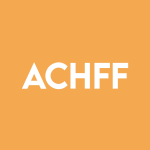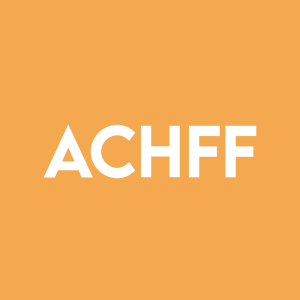Welcome to our dedicated page for Arch Biopartners news (Ticker: ACHFF), a resource for investors and traders seeking the latest updates and insights on Arch Biopartners stock.
Arch Biopartners Inc. (ACHFF) generates news primarily around its kidney-focused drug development programs, clinical trial milestones, and intellectual property expansions. As a late-stage clinical trial company, Arch regularly reports progress on Phase II studies targeting acute kidney injury (AKI) and updates on its emerging chronic kidney disease (CKD) platform.
News releases frequently cover developments in the LSALT peptide program, including site activations, ethics approvals, and patient recruitment in the international, multicenter Phase II trial for cardiac surgery-associated acute kidney injury (CS-AKI). These updates highlight new hospital sites joining the study in Canada and Turkey, dosing milestones, and design refinements approved by regulators.
Investors and observers also see detailed announcements on cilastatin, Arch’s repurposed DPEP1 inhibitor for drug toxin-related AKI. Coverage includes good manufacturing practice (GMP) production of the first stand-alone cilastatin drug product, funding awards to the investigator-led PONTIAK Phase II trial in Alberta, and the start of patient recruitment to evaluate cilastatin’s ability to prevent nephrotoxin-induced AKI.
More recently, Arch has reported on its acquisition of a pre-clinical IL-32 CKD platform through the purchase of Lipdro Therapeutics Inc. News in this area focuses on newly filed composition and method-of-use patents, the scientific rationale linking IL-32 to diabetic CKD, and the addition of new scientific leadership to guide the CKD program.
Readers following Arch Biopartners’ news can expect regular updates on trial enrollment, regulatory and ethics approvals, collaborations with academic medical centers, patent activity, and scientific publications that support the company’s nephrology-focused pipeline. This news flow provides ongoing insight into how Arch is advancing its drug candidates for acute and chronic kidney diseases.
Arch Biopartners (OTCQB: ACHFF) appointed Dr. Patrick Vink as Chairman of the Board, effective January 15, 2026. Dr. Vink has served as an industry advisor since 2015 and held senior roles at Cubist, Mylan (now Viatris), Novartis Sandoz, Biogen, and Sanofi-Synthelabo. He previously directed Arch from December 2016–December 2019 and remained a strategic advisor. Management transition follows the retirement of long-serving director Claude Allary. Management says Dr. Vink’s experience will support Arch’s acute kidney injury Phase II trials and its chronic kidney disease program.
Arch Biopartners (OTCQB: ACHFF) has significantly expanded its kidney therapeutics portfolio through the acquisition of Lipdro Therapeutics Inc., gaining a breakthrough pre-clinical platform for developing chronic kidney disease (CKD) treatments. The acquisition, valued at 250,000 common shares at $1.85 per share, includes patents for novel drug compositions targeting interleukin-32 (IL-32), a cytokine implicated in CKD progression.
The platform will be led by Dr. Justin Chun, Lipdro's founder, who joins Arch as Principal Scientist. The acquisition strengthens Arch's position in the $800M+ kidney therapeutics market, targeting a condition affecting over 800 million people globally. The technology represents a significant advancement in 'on-target' CKD treatment, particularly for diabetic kidney disease, which accounts for 30-40% of all CKD cases.
The deal includes newly filed patents protecting compositions and methods, with exclusive licensing from the National Research Council of Canada.
Arch Biopartners (OTCQB:ACHFF) has announced a significant milestone in its Phase II clinical trial for LSALT peptide, targeting cardiac surgery-associated acute kidney injury (CS-AKI). The first patient at Toronto General Hospital (TGH) has successfully completed the five-day dosing regimen.
TGH, ranked as the world's #3 hospital by Newsweek in 2025, joins the University of Calgary Hospital as the second Canadian site in the trial. St. Michael's Hospital in Toronto is expected to be the next Canadian site to join, pending regulatory approvals. The company is actively seeking additional North American clinical sites while limiting patient recruitment in Turkey to ensure demographic diversity in the trial data.
Arch Biopartners (OTCQB: ACHFF) has initiated patient recruitment for its Phase II PONTIAK trial, evaluating cilastatin's effectiveness in preventing drug-toxin-related Acute Kidney Injury (AKI). The study will enroll 698 patients across five hospital sites in Alberta, Canada.
The trial has secured substantial funding, including $1.5 million from the Canadian Institutes of Health Research and $400,000 from the Accelerating Clinical Trials initiative. Arch Biopartners has manufactured the first standalone cilastatin drug product for the trial and is exploring opportunities to expand the study to the United States.
Arch Biopartners (ACHFF) has received ethics approval from the University Health Network (UHN) Research Ethics Board for Toronto General Hospital (TGH) to participate in their ongoing Phase II trial of LSALT peptide. The trial focuses on preventing and treating cardiac surgery-associated acute kidney injury (CS-AKI).
TGH will become the seventh global site and second Canadian location for patient recruitment in this clinical study. The company plans to reduce recruitment in Turkey while increasing Canadian participation to diversify the trial's geographic and demographic data coverage.
Arch Biopartners Inc. (TSX Venture: ARCH, OTCQB: ACHFF) announced that its drug candidate cilastatin will participate in the PONTIAC Phase II trial, targeting acute kidney injury (AKI) caused by drug toxins. The 900-patient trial, funded by $1.9 million in grants, will evaluate cilastatin's efficacy in preventing AKI from antibiotics, chemotherapeutics, and radiographic contrast. Arch is repurposing cilastatin, a dipeptidase-1 inhibitor, as an AKI treatment, leveraging its unique ability to block toxin uptake in kidney tissue. This trial complements Arch's ongoing Phase II study of LSALT peptide for cardiac surgery-associated AKI. Together, these trials target about 50% of hospital AKI cases, for which no treatment currently exists.
Arch Biopartners has announced the completion of the good manufacturing practice (GMP) glass vial filling stage for cilastatin, their second drug candidate aimed at preventing acute kidney injury (AKI). Dalton Pharma Services finalized this stage, and over the next six to eight weeks, will complete the quality control process. This will result in the release of the first-ever stand-alone cilastatin drug product, which is set to be used in a Phase II trial for drug toxin-related AKI in hospitalized patients. The trial is expected to commence in late 2024. Arch will partner with Canadian clinical researchers, providing cilastatin, scientific, and regulatory support. The company holds method of use patents in North America and Europe for repurposing cilastatin as an AKI treatment. This milestone is a significant step in their plans to introduce cilastatin as a novel treatment for toxin-related AKI.
Arch Biopartners has received ethics approval from the University of Calgary's Conjoint Health Research Ethics Board to initiate a Phase II trial for the LSALT peptide. This trial targets the prevention and treatment of cardiac surgery-associated acute kidney injury (CS-AKI). The approval allows the clinical team at the University of Calgary to finalize preparations and training for patient recruitment. This process is expected to continue until final approval from Alberta Health Services is obtained. Patient recruitment is already ongoing at five sites in Turkey since March, with Health Canada approving recent protocol enhancements. These enhancements are still pending approval from the Turkish Ministry of Health. CEO Richard Muruve expressed satisfaction with the trial's progress and anticipates that starting dosing in Calgary and later in Toronto will significantly benefit the trial.


